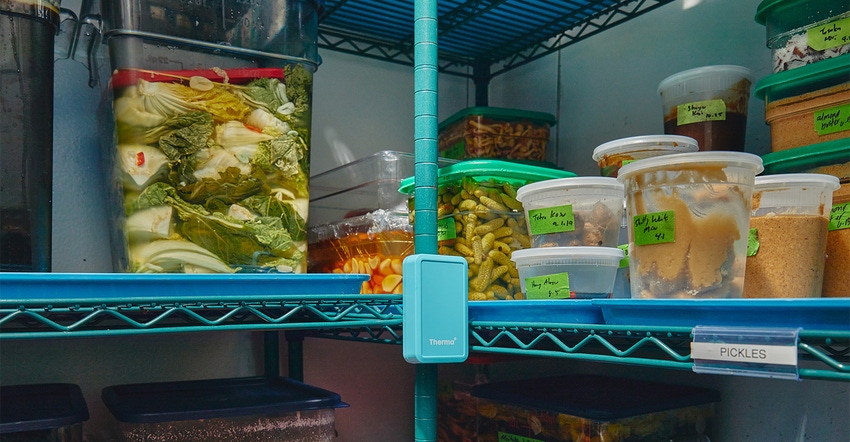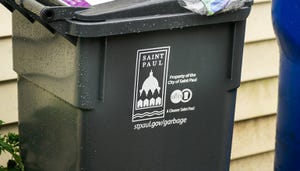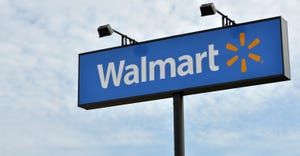Therma Aims to Reduce Food Waste with Temperature Sensor

Restaurants are continuously finding new ways to reduce food waste. They effectively do so through consistent environmental controls that optimize the shelf-life of inventory, and reducing inventory limits the amount of time food is stored and ensures it is consumed before it outlives its shelf-life.
Additionally, they regularly maintain refrigeration equipment to prevent breakdowns from occurring and limit the likelihood of loss events.
Temperature monitoring is essential to restaurants because 85% of restaurant product loss issues are attributable to substandard food storage conditions. With the average restaurant spending 30-33% of its revenue on ingredients, reducing food waste and loss events significantly impact restaurants’ bottom line, according to Manik Suri, CEO and founder of Therma.
“The key to efficient storage is to identify the optimal storage conditions of your inventory and store the items under those conditions. Therma helps operators keep products in their ideal ranges, ultimately optimizing inventory shelf-life,” he says.
Therma, a technology startup who builds sustainable tools to eliminate food waste, has launched its most recent product -- a wireless sensor protects all inventory 24/7 from equipment failures, power outages, and human error.
To date, the San Francisco-based company has prevented $495 of food spoilage per month per full-service restaurant location and $228 of food spoilage per month per quick service restaurant location.
Suri says that Therma prevents food spoilage in two ways:
Alerts via email, SMS, and phone call notify restaurants when their refrigeration is out of set temperature thresholds.
Therma data insights identify when equipment requires maintenance, preventing costly last-minute repairs and food inventory waste.
“Equipment failures, power outages, and human error are the primary causes of loss events in restaurants. Therma sensors alert restaurant staff when temperatures are outside of approved ranges, says Suri. “Alerts are tied to specific refrigeration units so operators can quickly identify if one piece of equipment is malfunctioning, or the entire location is experiencing issues.”
After receiving the alerts, operators mobilize to take the appropriate action, including closing doors that were left open during restock, calling maintenance repair, or relocating inventory to alternate locations.
Therma utilizes LoRaWAN (long-range, low-power radio signal). Therma works in a range of 1,200-plus feet.
“With the integration of LoRaWAN into our product suite, we can provide exceptional connectivity in dense, noisy, chaotic environments where other wireless devices have struggled or failed,” says Andrew Hager, CTO and co-founder of Therma.
Therma also uses a three-step system to transmit data from equipment into restaurant operator’s hands. This includes installing sensors into equipment to measure temperature and humidity, processing this data and sending it to the cloud, and a dashboard and mobile app interpreting and displaying the Therma data, turning it into temperature alerts and reports.
In 2021, Therma secured a $10.2 million seed round to accelerate product growth and make a global impact on climate.
“This represents a major step forward in the evolution of the 150-year-old cold-chain. Food and beverage, healthcare, hospitality, and manufacturing are all critically dependent on the refrigeration cold chain,” says Suri. “Over the last year, we have seen a significant increase in demand across these industries for real-time equipment monitoring and analytics that not only reduce costs and improve safety but also positively impacts climate change.”
About the Author(s)
You May Also Like


